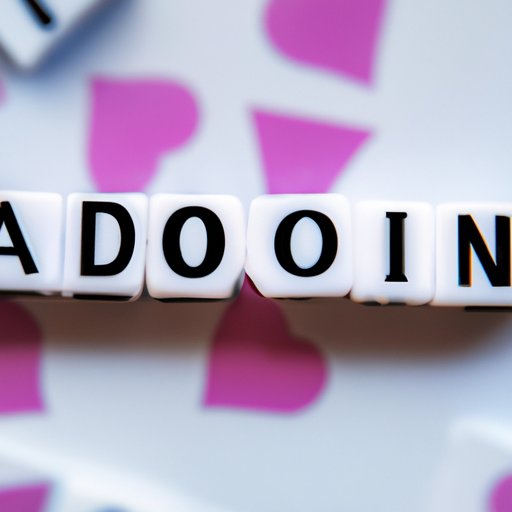
Introduction
Love addiction is a topic that has been widely debated in the field of psychology. While some people believe that love addiction is a real phenomenon, others argue that it is simply an excuse for poor behavior in relationships. Love addiction is characterized by a compulsive and obsessive need to be with a romantic partner. People who are addicted to love may feel unable to control their behaviors, even when those behaviors are causing harm to themselves or others. This article explores the science behind love addiction, the warning signs of love addiction, and tips for breaking free from an unhealthy dependence on a romantic partner.
The Science Behind Love Addiction: Can You Be Addicted to a Person?
The brain chemistry behind love addiction is complex. According to research, love addiction is linked to an imbalance in dopamine, which is a neurotransmitter that is associated with reward and pleasure. When a person is in love, their brain floods with dopamine, causing a rush of euphoria and a desire to be near their partner. However, when the relationship is unhealthy or codependent, the brain may become addicted to dopamine in the same way that it can become addicted to drugs or alcohol. This can lead to compulsive behaviors and an inability to control one’s actions.
The Warning Signs of Love Addiction: How to Recognize if You’re Addicted to Your Partner
There are several warning signs of love addiction. People who are addicted to love may feel consumed by their thoughts of their partner. They may feel an intense need to be with their partner, even at the expense of their own well-being. Love addicts may also experience physical symptoms when they are away from their partner, such as anxiety, sleeplessness, or physical pain. They may struggle to maintain healthy boundaries in the relationship or they may become jealous and possessive of their partner.
Breaking Free from Love Addiction: Tips for Overcoming Your Dependence on Your Partner
If you believe that you are addicted to your partner, it is important to seek help. Speaking with a therapist can help you to understand the underlying emotional issues that may be driving your addictive behavior. It is also important to practice self-love and self-care. This means taking time for yourself to pursue hobbies, interests, and friendships that are not centered around your partner. Setting healthy boundaries and communicating your needs and expectations with your partner can also help to break the cycle of addictive behavior.
The Dangers of Love Addiction: How It Can Impact Your Mental Health and Relationships
Love addiction can have serious consequences on a person’s mental health and relationships. People who are addicted to love may struggle with depression, anxiety, or other mental health disorders. They may also experience codependency, which is a pattern of unhealthy reliance on another person. In addition, love addiction can strain romantic relationships and may lead to breakups or divorce. It is important to seek help if you believe that you or someone you know may be struggling with love addiction to prevent these negative consequences.
Real People Share Their Stories of Love Addiction: What It Feels Like to Be Addicted to Someone
Reading personal stories from people who have experienced love addiction can be an eye-opening experience. These stories can provide insight into the emotional and psychological experiences of people who struggle with this issue. Sharing stories can also reduce the stigma surrounding love addiction and encourage people to seek help. Some common themes that emerge from these stories include the feeling of being unable to control one’s behavior, the experience of intense euphoria when with one’s partner, and the sense of needing constant validation from one’s partner.
Conclusion
Love addiction is a complex and often misunderstood issue. Understanding the science behind love addiction, recognizing the warning signs, and seeking help if necessary are all important steps toward breaking free from an unhealthy dependence on a romantic partner. By seeking help, setting healthy boundaries, and practicing self-love, it is possible to overcome love addiction and create fulfilling and satisfying relationships.




